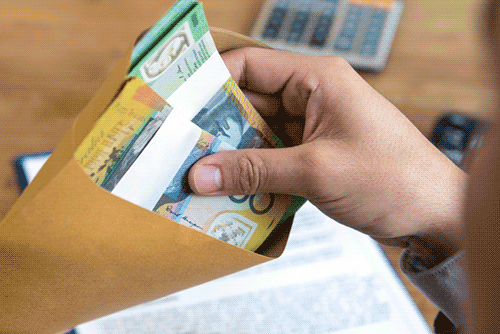Minimum wage rises but hospo workers will have to wait to see it

Those on the minimum wage will be paid an extra $1.05 an hour from July 1, as the base rate lifts from $20.33 to $21.38 – a 5.2% increase. However, hospitality workers will have to wait.
Award rate workers will receive an extra 4.6 per cent, which is a cut in real wages. If you are on $869.60 per week or below, you will receive a minimum $40 weekly increase.
According to the Fair Work Commission more than 2.7 million workers will be affected.
Also affected will be employees on enterprise agreements and other pay settings.
The rise in minimum wage was a key pillar of the Albanese election campaign.
"The truth is that many of those people who are on the minimum wage are the heroes that saw us through the pandemic," Albanese said.
The move was also endorsed by Employment Minister Tony Burke who said people would "see in their bank accounts what the change of government means".
"For the first time in nearly a decade, we've had a government argue for a real wage increase, and now it will be delivered.”
There has been some pushback, mostly by business groups fearful of rising supply chain costs.
Andrew McKellar — the head of the peak representative group for business said "This will add $7.9 billion in costs to the affected businesses over the year ahead, so that will be a very considerable burden that those businesses will either have to take to the bottom line or pass on to their customers.
"If we are to remain competitive, then, clearly, this is not a decision that will help in those circumstances."
However, Fair Work Commission president Iain Ross said the pressure of the rising cost of living on low-paid workers was too hard to ignore.
"We are conscious that the low paid are particularly vulnerable in the context of rising inflation," Ross said.
"If we were to accept the submissions of some of the employer bodies, and award no increase at all, then the real wage reduction would be even more severe."
Ross believes the current labour market is strong enough to facilitate the pay increase and it would not have a "significant adverse effect" on the economy.
As for the unions, they have called the decision reasonable.
"This decision is one that is reasonable and it is fair," Sally McManus, head of the Australian Council of Trade Unions said.
"It means that for low paid workers, [they] will have a better ability to pay rent and pay for the groceries and to pay for energy bills as well."
Unfortunately for hospitality workers, the increase has been delayed.
Aviation will also have to wait.
"All Australians should share in the recovery and share in the growth that they are producing at the moment, and they are not," she said.
Despite the increase, there is economic pain coming as interest rates and inflation continue to rise.
Irit Jackson, 15th June 2022


.gif)




